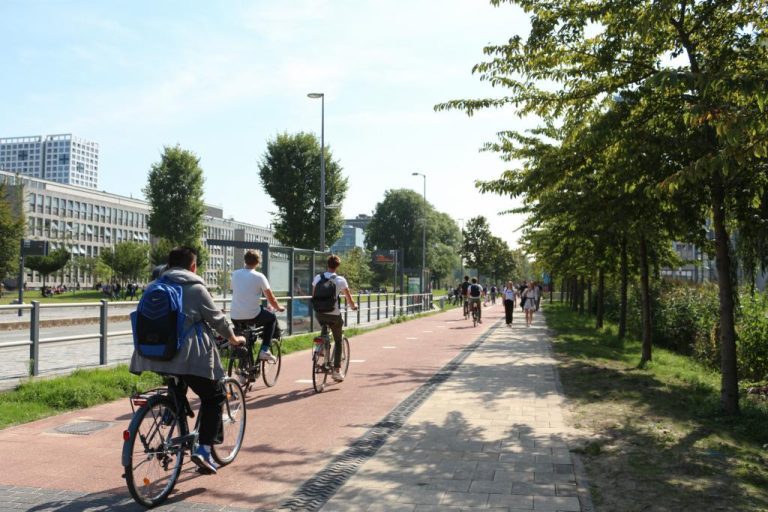Plastic cycle path on campus
People can be clever. And so can some animals. But do not underestimate cycle paths. They too can be hyper intelligent, say researchers from TU Delft’s Transport and Planning department. In front of the entrance to the Faculty of Civil Engineering and Geosciences, they are having a stretch of road constructed this week that they describe as “the most intelligent cycle path in the Netherlands.”
Sensors in this bike path register how much traffic is racing over it at what speed and at what time. The data is collected for the Smart Urban Mobility project led by Professor Serge Hoogendoorn. This research aims to develop sustainable, efficient and innovative mobility solutions to keep the cities of the future accessible and liveable. The company PlasticRoad has developed the bike path. The PlasticRoad consists of a prefab, modular road construction based on recycled plastic and has a hollow space which can be used as (temporary) water storage and thus prevents flooding during extreme rainfall. The top layer is made of the same material (crushed stone) as that used for regular cycle paths.

A stretch of ‘old-fashioned’ cycle path will be replaced by a ‘hyper-intelligent’ plastic path this week. (Photo: Justyna Botor)
Do you have a question or comment about this article?
tomas.vandijk@tudelft.nl

Comments are closed.